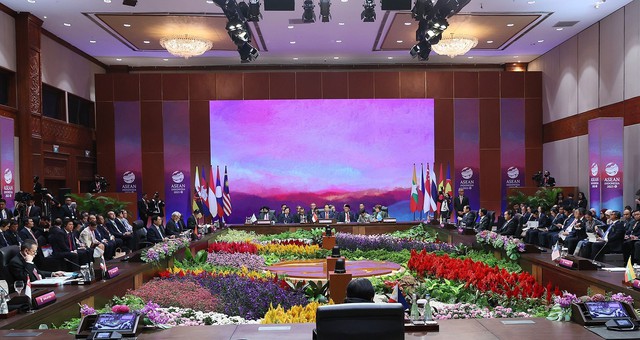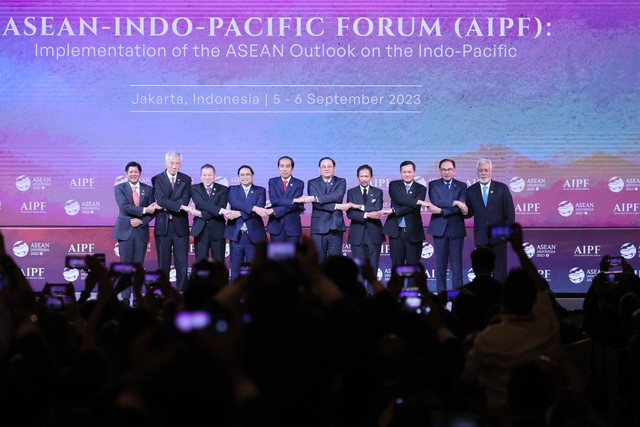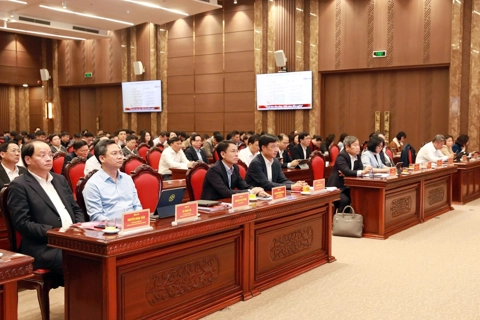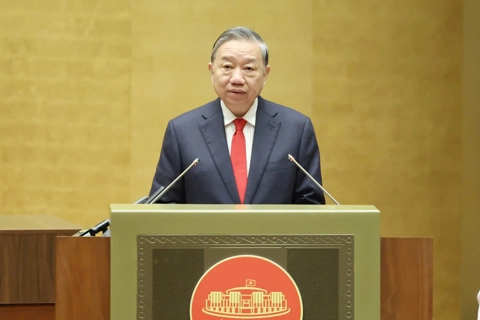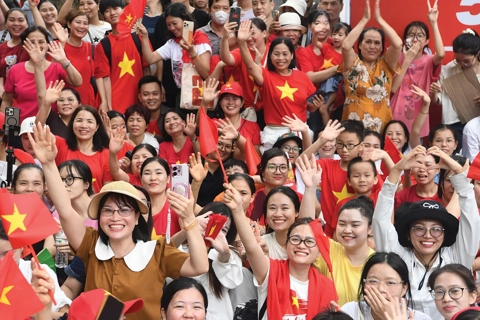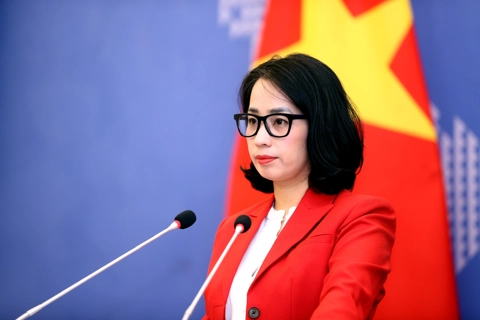ASEAN responsible for its security and peacekeeping: PM
In the face of growing friction and strategic competition among major countries, the Vietnamese Prime Minister emphasized the need for ASEAN to demonstrate a strong and unified spirit.
ASEAN must firmly establish the principle that safeguarding peace, security, and the region's well-being is primarily the bloc's responsibility and initiative.
| Prime Minister Pham Minh Chinh at the summit. Photos: Nhat Bac |
Prime Minister Pham Minh Chinh made the remarks at the plenary session of the 43rd ASEAN Summit held today [September 5] in Jakarta, Indonesia.
"ASEAN member states must embody the values of unity, independence, self-sufficiency, and resilience in both rhetoric and actions. Through this commitment, ASEAN can significantly enhance its role and garner genuine recognition from its partners, particularly the world powers," Chinh said.
The prime minister noted that while the global economy has shown more positive signs of recovery in 2023, it still faces numerous risks, including unsustainable growth, sluggish trade recovery, and escalating geopolitical instability.
According to Chinh, in this challenging environment, the ASEAN Community continues to grow steadily and assert its pivotal role with member countries' concerted efforts and unity. ASEAN remains a shining example of economic growth, the hub of Free Trade Agreement (FTA) networks, and a key player in important regional cooperation mechanisms such as ASEAN+1, ASEAN+3, and the East Asia Summit (EAS).
To maintain and strengthen its "ASEAN matters" and remain the "epicentrum of growth," Chinh emphasized the necessity of bolstering ASEAN's self-reliance. This involves fostering economic ties, expanding intra-regional markets, and facilitating trade routes and investment flows.
| Overview of the summit. |
He, therefore, urged ASEAN member countries to promptly address policy and institutional bottlenecks and maintain the stability of the regional supply chain to enhance resilience to the impact of pandemics and external challenges.
Chinh also called upon ASEAN Economic Ministers to take decisive steps to review, upgrade, and negotiate new FTAs between ASEAN and its partners to generate fresh impetus for regional economic development.
ASEAN warmly welcomes partners to engage in regional cooperation, support ASEAN, and work together to address common challenges, he noted.
In the face of the growing friction and strategic competition among major countries, the prime minister emphasized the need for ASEAN to demonstrate a strong and unified spirit. He stressed that this unity will earn the respect of partners and underscore the central role of ASEAN, fostering constructive dialogue and cooperation that aligns with the principles and guidelines established by ASEAN mechanisms.
Looking forward to an ASEAN characterized by equitable and sustainable development, Chinh reiterated the fundamental ethos of ASEAN, which places "people at the heart, as the objective, and as the driving force behind the process of community building."
This commitment aims to further bridge the development gaps within ASEAN, particularly in remote and sub-regional areas. Chinh praised the Indonesian President's initiatives, such as promoting the digital and maritime economy, ensuring food security, building an electric vehicle ecosystem, and fostering sustainable self-reliance. These initiatives were recognized as proactive measures reflecting ASEAN's ingenuity in serving the practical interests of its people.
In line with this vision, Chinh announced that Vietnam will host the ASEAN Future Forum on rapid, sustainable, and people-centric development. This forum will complement the official ASEAN forums and mechanisms, providing a platform for in-depth exchanges of ideas and initiatives for regional cooperation. It aims to contribute to building a resilient and sustainable ASEAN Community.
| ASEAN leaders at the summit. |
Reporting on ASEAN's collaborative efforts over the past year, ASEAN Secretary-General Kao Kim Hourn stated that the region has successfully maintained its economic growth momentum, with an optimistic GDP forecast of 4.6% in 2023 and 4.9% in 2024. ASEAN's trade has seen impressive growth, nearly reaching 15%, totaling $3.8 trillion, while investment has reached an all-time high of over $224 billion.
However, the regional economy still faces potential risks and is directly affected by various factors, including geopolitical tensions, climate change, energy security, and food security. In response to these challenges, ASEAN is experiencing significant shifts towards digitization and sustainable development, aiming to enhance the region's competitiveness and strengthen its pivotal role in the global value chain.
During the plenary session, Managing Director of the International Monetary Fund (IMF) Kristalina Georgieva and President of the World Bank (WB) Ajay Banga both highlighted ASEAN as a bright spot amid global economic difficulties, emphasizing the need for the region to accelerate economic restructuring reforms, remove trade and investment barriers, and focus on investing in human development through education, healthcare, equitable development, and sustainable growth.
They stressed that unity, solidarity, cooperation, and trust remain essential values of multilateralism to overcome the challenges of fragmentation and division in the face of increasing geopolitical competition.
During this summit, ASEAN leaders also adopted several significant documents, including declarations on inclusive development for people with disabilities, family development, and gender equality, as well as initiatives related to food security, early childhood care and education, and the ASEAN Public Health Emergency Coordination System. These actions further strengthen ASEAN's commitment to building a community that prioritizes the well-being and needs of its people.
On the same day, Prime Minister Pham Minh Chinh will join ASEAN leaders and partners for the opening session of the ASEAN-Indo-Pacific Forum (AIPF). This initiative, hosted by Indonesia during its year as ASEAN Chair in 2023, aims to tap into the potential and opportunities for enhanced cooperation and connectivity among ASEAN countries and the broader Indo-Pacific region.
The AIPF is a comprehensive platform for representatives from ASEAN nations and partner entities from the public and private sectors. It facilitates discussion and the formulation of strategic cooperation priorities with a focus on three key themes: (I) green infrastructure and resilient supply chains; (ii) digital transformation and the creative economy; and (iii) sustainable finance and innovation.



